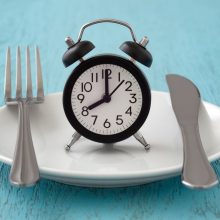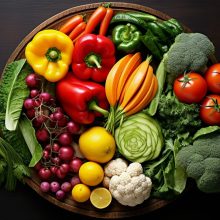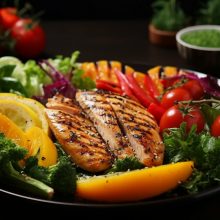What Foods Make You Lose Weight: Discover Healthy Options

Welcome to our article on the best foods for weight loss! If you’re looking to shed some pounds and improve your overall health, you’re in the right place. While exercise is important, diet plays a crucial role in achieving and maintaining a healthy weight. In this article, we’ll explore a variety of foods that can help you lose weight in a healthy, sustainable way.
From high-protein options to nutrient-dense choices, we’ll cover a range of food groups and explain how they can benefit your weight loss journey. We’ll also provide tips for mindful eating and discuss the role of exercise in a healthy lifestyle.
So, let’s get started! Discover the best foods for weight loss and take a step towards a healthier you.
Key Takeaways:
- Weight loss is achieved through a combination of diet and exercise.
- Foods that promote weight loss include those that are high in protein, fiber, healthy fats, and low in carbs.
- Mindful eating and regular exercise are important components of a healthy lifestyle.
Understanding Weight Loss
Weight loss is the process of reducing body mass, achieved through a combination of dietary modifications, exercise, and lifestyle changes. The human body typically loses weight when it expends more energy than it consumes. Therefore, to effectively lose weight, one must create a calorie deficit through a combination of physical activity and a healthy diet.
While exercise is an important element of weight loss, nutrition is the cornerstone of any successful weight loss plan. Consuming the right types of foods can help to burn fat, boost metabolism, control hunger, and aid in weight loss efforts.
To maximize the benefits of a weight loss diet, it is essential to consume a balanced mix of nutrient-dense foods that promote satiety, while also limiting processed foods and unhealthy fats.
Research indicates that certain foods can aid in weight loss efforts by supporting metabolism, promoting fullness, and controlling cravings. In the following sections, we will highlight some of the best foods for weight loss and outline how they can support a healthy, balanced diet.
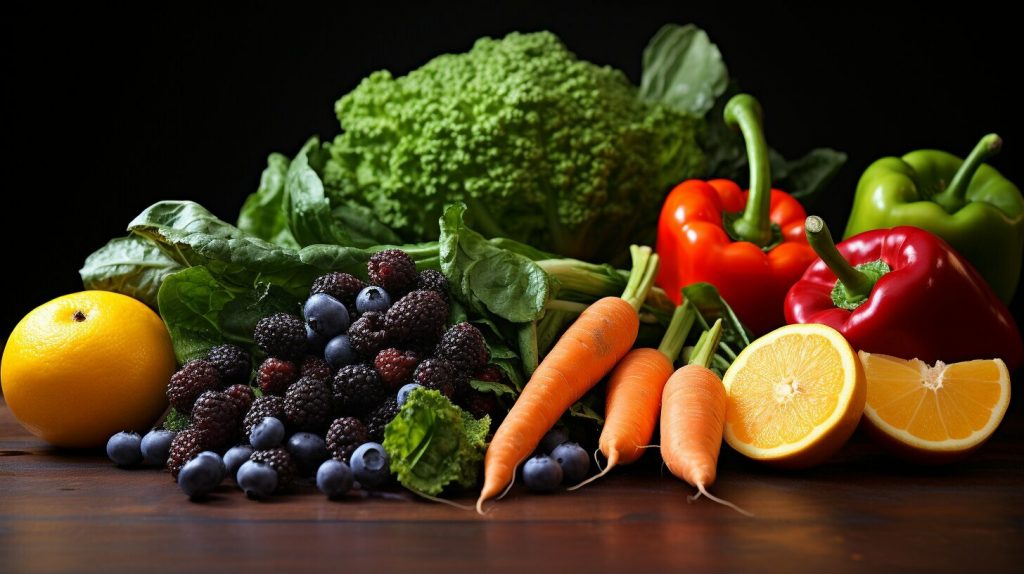
High-Protein Foods for Weight Loss
Protein is an essential nutrient for building muscle mass and aiding in weight loss. By consuming high-protein foods, you can increase your metabolism and burn more calories throughout the day. Additionally, protein helps to keep you feeling fuller for longer, reducing your overall calorie intake.
| High-Protein Foods | Protein Content (per 100 grams) |
|---|---|
| Chicken breast | 31 grams |
| Tuna | 30 grams |
| Eggs | 13 grams |
| Greek yogurt | 10 grams |
| Lentils | 9 grams |
| Quinoa | 8 grams |
Incorporating these high-protein foods into your diet can promote weight loss while maintaining muscle mass. Try incorporating lean sources of protein, such as grilled chicken or fish, into your meals, or adding Greek yogurt or lentils to your snacks. For a filling and nutritious meal, consider a quinoa and lentil bowl topped with grilled chicken.
Remember to consult with your healthcare provider before making any significant changes to your diet.
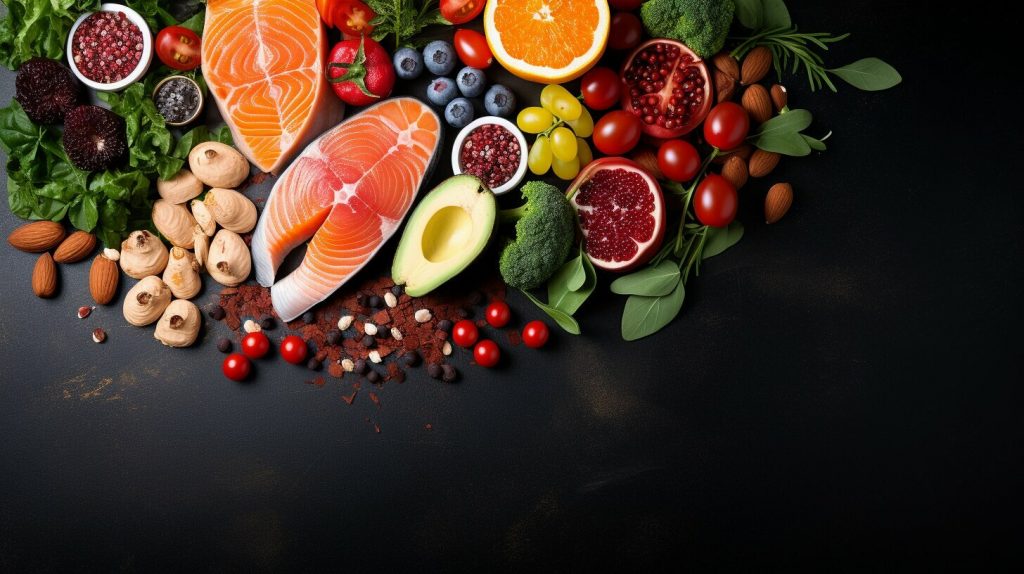
Fiber-Rich Foods for Weight Loss
Eating foods high in fiber can help you lose weight by keeping you feeling full for longer periods of time and stabilizing blood sugar levels. Additionally, fiber-rich foods tend to be lower in calories, making them an ideal choice for weight loss.
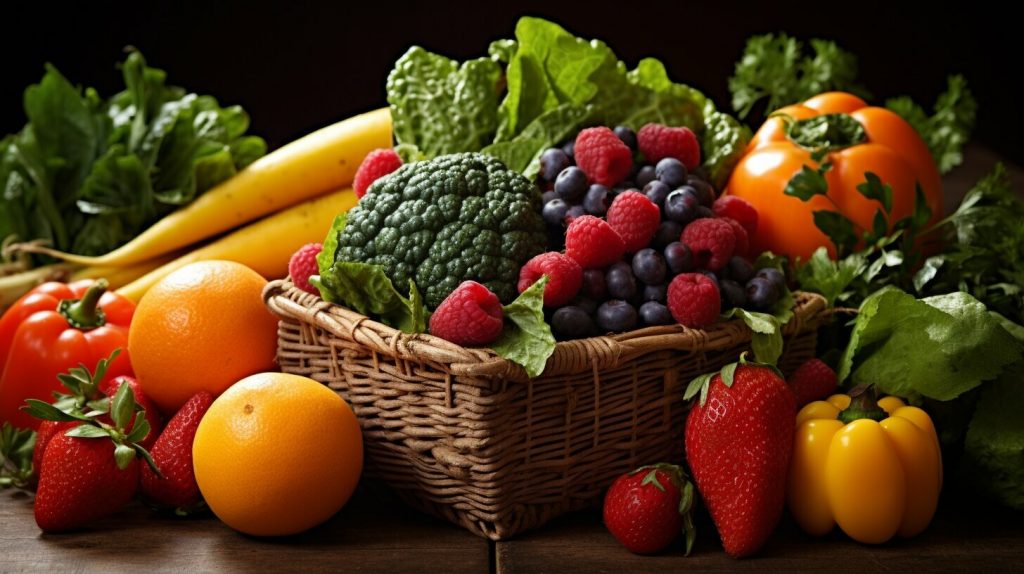
Some of the best fiber-rich foods for weight loss include:
| Fruit | Vegetables | Whole Grains |
|---|---|---|
| Berries | Broccoli | Quinoa |
| Apples | Carrots | Brown Rice |
| Pears | Spinach | Whole Wheat Bread |
By incorporating these fiber-rich foods into your diet, you can support your weight loss goals while also reaping the many health benefits of a high-fiber diet.
Click here to start losing weight fast!
Healthy Fats for Weight Loss
Many people believe that eliminating all fats from their diet will help them lose weight, but consuming healthy fats is actually essential for weight loss. Healthy fats, such as those found in nuts, seeds, avocados, and fatty fish can actually help reduce inflammation and promote satiety, preventing overeating.
In fact, research has found that incorporating healthy fats into a weight loss diet can improve cholesterol levels and even boost metabolism. However, it’s important to consume these fats in moderation as they are also calorie-dense.
One great source of healthy fats is nuts, which are rich in omega-3 fatty acids and protein. Almonds, walnuts, and pistachios are great options to incorporate into your diet. Another excellent source is avocados, which also contain fiber and potassium.
| Healthy Fats for Weight Loss | Portion Size | Calories |
|---|---|---|
| Almonds | 1 ounce (about 23 almonds) | 161 |
| Avocado | 1/4 avocado | 80 |
| Salmon | 3 ounces | 177 |
Including healthy fats in your diet can not only support weight loss but also improve overall health. Try incorporating a handful of nuts or a quarter of an avocado into your meals to reap the benefits.
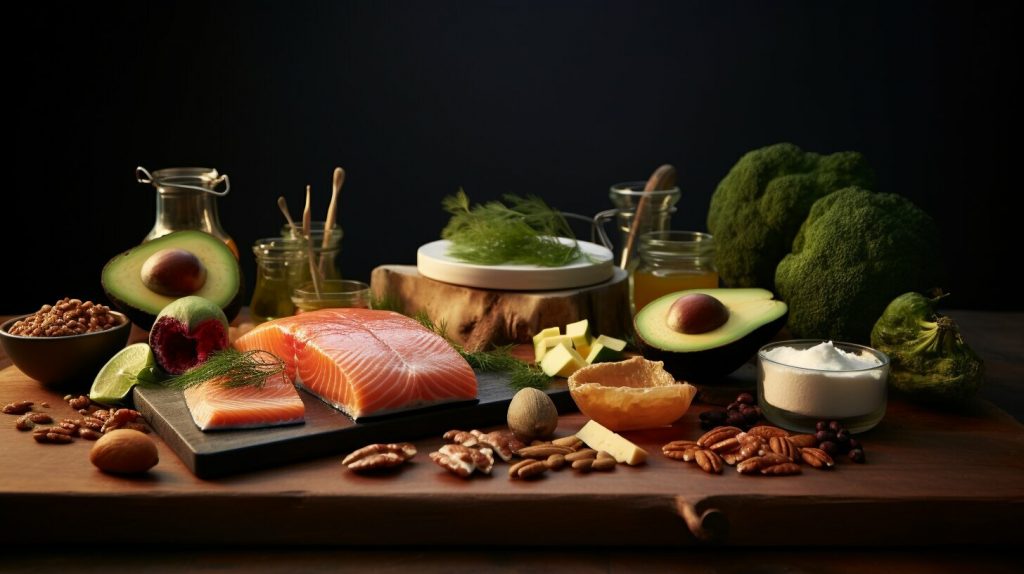
Low-Carb Foods for Weight Loss
Low-carb diets have gained popularity in recent years due to their effectiveness in promoting weight loss. They work by restricting the intake of carbohydrates, which leads the body to burn stored fat for energy instead of glucose. Incorporating low-carb foods into your diet can help you achieve your weight loss goals.
Some examples of low-carb foods include:
| Food | Net Carbs per 100g |
|---|---|
| Eggs | 0.6g |
| Avocado | 1.8g |
| Broccoli | 4.4g |
| Almonds | 5.2g |
| Spinach | 1.4g |
Low-carb foods tend to be high in protein and healthy fats, which can help you feel fuller for longer and reduce cravings. They also tend to be nutrient-dense, meaning they provide a high amount of vitamins and minerals per calorie.
However, it’s important to note that not all carbohydrates are bad for weight loss. Whole grains, fruits, and vegetables are also important sources of essential nutrients and fiber. It’s all about finding the right balance of macronutrients for your body and goals.
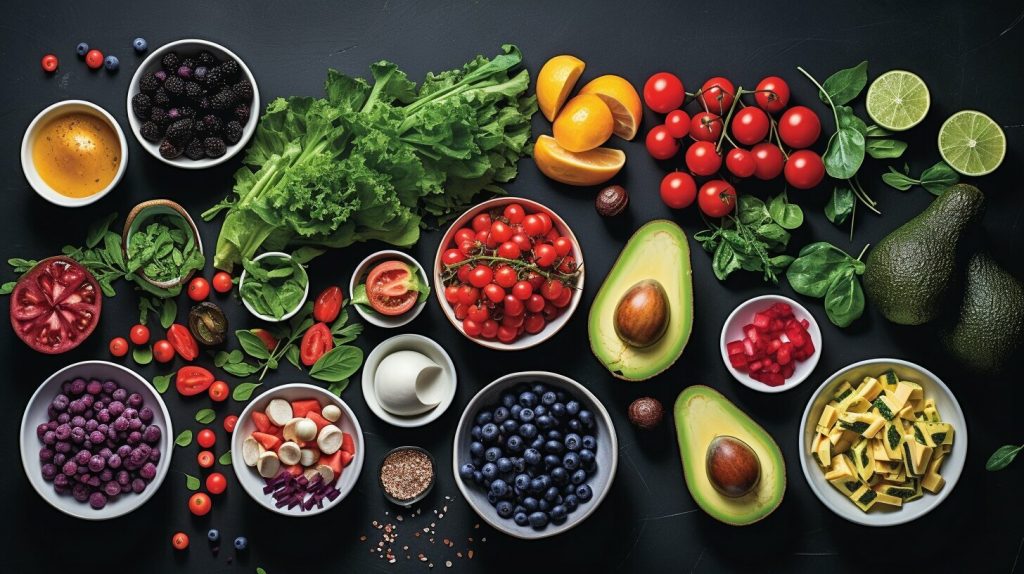
Nutrient-Dense Foods for Weight Loss
Choosing nutrient-dense foods is an important part of any weight loss plan. These foods are rich in essential vitamins, minerals, and other important nutrients that support overall health and well-being. In addition, nutrient-dense foods can help you feel full and satisfied, making it easier to stick to a healthy eating plan.
Some of the best nutrient-dense foods for weight loss include:
| Food | Nutrients |
|---|---|
| Leafy greens (spinach, kale, collards) | Vitamins A, C, K; iron; calcium |
| Berries (raspberries, blueberries, strawberries) | Fiber; antioxidants |
| Nuts (almonds, walnuts, pistachios) | Protein; healthy fats; fiber; vitamins and minerals |
| Fish (salmon, tuna, sardines) | Omega-3 fatty acids; protein; vitamin D |
Adding these nutrient-dense foods to your diet can help support weight loss while also providing important health benefits.
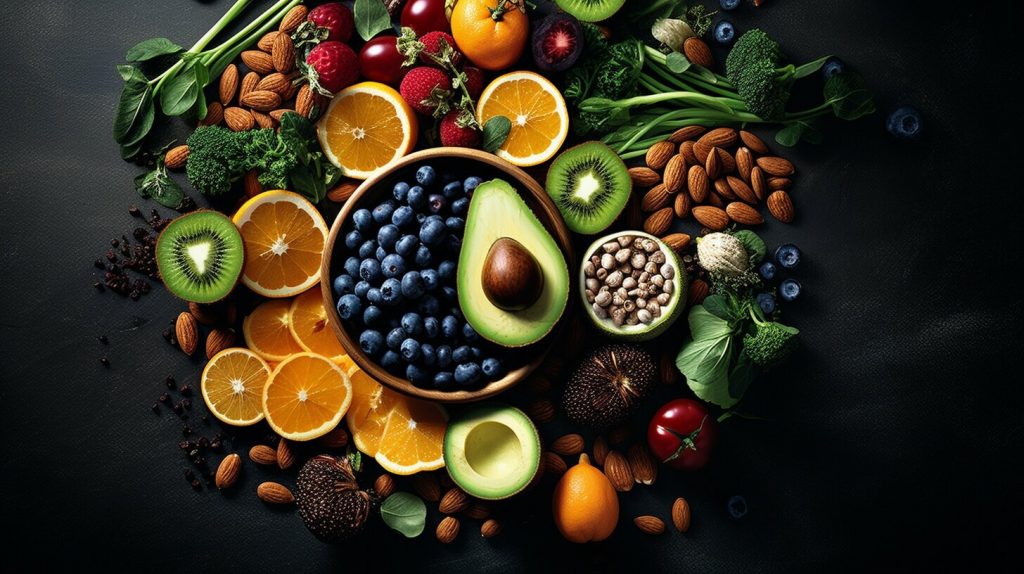
Don’t forget to include a variety of other healthy foods in your eating plan as well, such as whole grains, lean proteins, and fruits and vegetables. By incorporating a variety of nutrient-dense foods into your diet, you can support your weight loss goals while also promoting overall health and well-being.
Click here to start losing weight fast!
Hydrating Foods for Weight Loss
When you’re trying to lose weight, hydration is essential. Drinking enough water is important, but you can also eat foods that have a high water content to help you stay hydrated and feel full. These foods are not only good for weight loss but also help to support overall health.
Some of the best hydrating foods for weight loss include:
| Food | Water content |
|---|---|
| Cucumber | 96% |
| Zucchini | 95% |
| Tomatoes | 94% |
| Watermelon | 92% |
| Spinach | 91% |
| Grapefruit | 90% |
These foods are not only hydrating, but they also have a low calorie content, making them great options for weight loss. Incorporating more of these hydrating foods into your diet can help you stay full, control your appetite, and support your weight loss goals.
Image source: 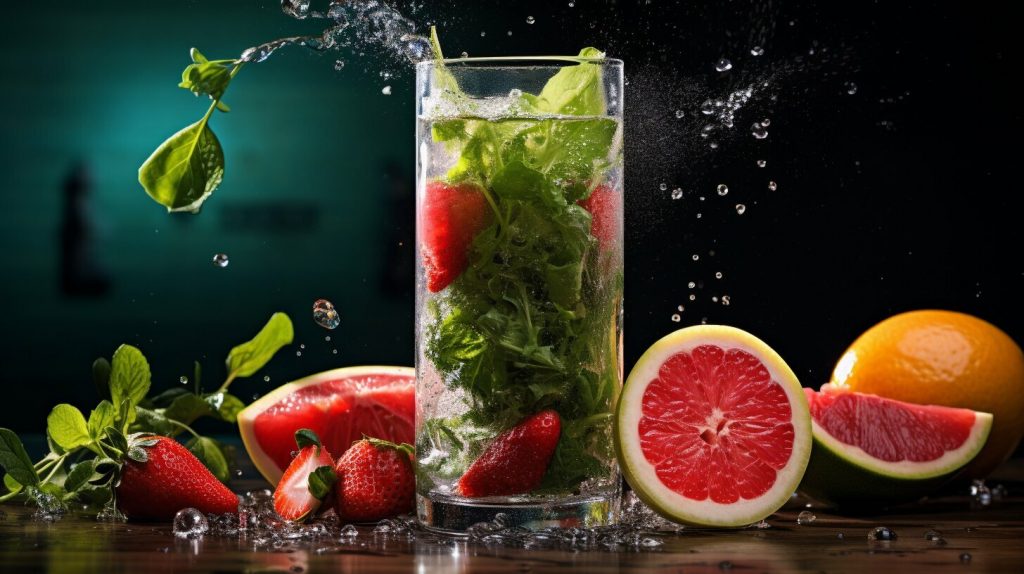
Metabolism-Boosting Foods for Weight Loss
Metabolism plays a crucial role in weight loss. The faster your metabolism, the more calories you burn, even when at rest. Eating certain foods can help boost your metabolic rate and aid in weight loss. Here are some examples of metabolism-boosting foods:
| Food | How it boosts metabolism |
|---|---|
| Eggs | Eggs are high in protein and can increase metabolic rate by up to 35% for several hours. |
| Green tea | Green tea contains catechins which can help increase metabolism and fat burning. |
| Spicy peppers | Spicy peppers contain capsaicin which boosts metabolism and can increase fat burning. |
| Lean meats | Lean meats such as chicken and turkey are high in protein which can increase metabolic rate and promote fat burning. |
Additionally, drinking plenty of water throughout the day can also help boost metabolism as dehydration can slow it down. Try incorporating these foods into your diet to give your metabolism a natural boost.
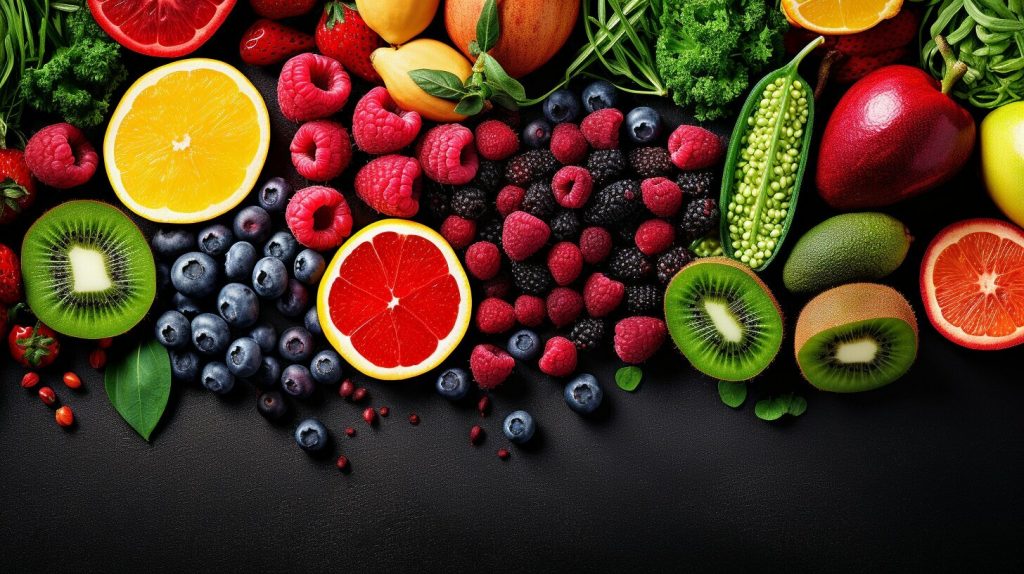
Mindful Eating for Weight Loss
Weight loss is not just about what you eat but also how you eat. Mindful eating is a practice that can help you develop a healthier relationship with food and support your weight loss journey.
Mindful eating means paying attention to your food and eating experience. It involves slowing down, savoring each bite, and enjoying your food without distractions. Research has shown that mindful eating can help you make better food choices, reduce overeating, and improve your overall relationship with food.
Here are some tips for practicing mindful eating:
- Eliminate distractions while eating, such as watching TV or scrolling through your phone
- Eat slowly and savor each bite
- Pay attention to your hunger and fullness cues
- Focus on the flavors, textures, and smells of your food
- Express gratitude for your food and the people who made it
Mindful eating can also help you identify emotional and stress triggers that may lead to overeating. By recognizing these triggers, you can develop healthier coping mechanisms and avoid turning to food for comfort.
By incorporating mindful eating into your weight loss plan, you can develop a healthier relationship with food and support your body in reaching its full potential.
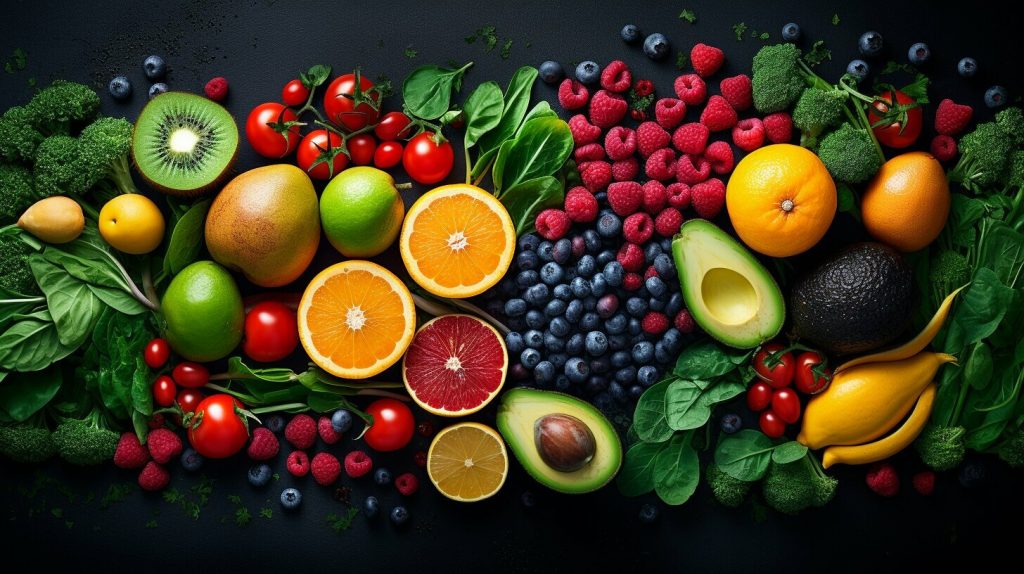
Exercise and Weight Loss
While a healthy diet is crucial for weight loss, exercise is also an important component of a successful weight loss plan. Regular physical activity can help burn calories and boost metabolism, making it easier to lose weight and keep it off.
When incorporating exercise into your weight loss plan, it’s important to choose activities that you enjoy and can stick with long-term. It could be as simple as taking a brisk walk or jog, or participating in a fitness class or sport. The key is consistency and making exercise a regular part of your routine.
It’s recommended to aim for at least 150 minutes of moderate-intensity exercise per week, such as brisk walking or cycling, or 75 minutes of high-intensity exercise, such as running or aerobic dance. Strength training exercises, such as weightlifting or bodyweight exercises, can also be beneficial for building muscle and increasing metabolism.

Additionally, incorporating physical activity throughout the day, such as taking the stairs instead of the elevator or going for a walk during lunch, can also contribute to weight loss and overall health.
Remember, it’s important to consult with a healthcare professional before starting a new exercise routine, especially if you have any underlying medical conditions or are new to exercise. By combining a healthy diet with regular exercise, you can achieve your weight loss goals and improve your overall health and well-being.
Conclusion
Weight loss can be a challenging journey, but choosing the right foods can make a significant difference. By selecting foods that promote weight loss and incorporating them into a well-rounded eating plan, you can achieve your health goals.
Throughout this article, we have discussed various types of foods that can aid in weight loss. High-protein, fiber-rich, healthy fats, low-carb, nutrient-dense, hydrating, and metabolism-boosting foods are all excellent choices to include in your weight loss diet.
Remember to be Mindful
It’s also important to note that mindful eating and regular exercise are crucial components of a healthy weight loss plan. Taking the time to listen to your body and pay attention to the signals it sends can help you make better choices and achieve lasting results.
With the right mindset and a commitment to making healthier choices, you can use food to support your weight loss goals and achieve a happier, healthier you.
Click here to start losing weight fast!
FAQ
Q: What foods make you lose weight?
A: Discover healthy options for weight loss with our guide on the best foods for weight loss.
Q: Understanding Weight Loss
A: Learn about the concept of weight loss and how certain foods can support your journey to a healthier you.
Q: Which high-protein foods are good for weight loss?
A: Explore natural weight loss foods that are high in protein and can aid in your weight loss goals.
Q: What are some fiber-rich foods for weight loss?
A: Find out the importance of fiber in a weight loss diet and discover examples of fiber-rich foods that can help burn fat.
Q: How can healthy fats contribute to weight loss?
A: Discover the significance of incorporating healthy fats into your weight loss plan and how they can boost your metabolism.
Q: Are low-carb foods effective for weight loss?
A: Learn about the benefits of consuming low-carb foods for rapid weight loss and burning fat.
Q: Which nutrient-dense foods are helpful for weight loss?
A: Emphasize the importance of choosing nutrient-dense foods to support your weight loss journey.
Q: What hydrating foods can aid in weight loss?
A: Highlight the role of hydration in weight loss and explore foods with high water content that can help you reach your goals.
Q: How do metabolism-boosting foods contribute to weight loss?
A: Learn about the impact of metabolism on weight loss and discover examples of foods that can boost your metabolic rate.
Q: What is mindful eating and how does it relate to weight loss?
A: Explore the concept of mindful eating and its positive effect on weight loss.
Q: How does exercise complement a healthy eating plan for weight loss?
A: Find out how exercise can enhance your weight loss efforts when combined with a healthy eating plan.
Q: What role does food play in weight loss?
A: Summarize the main points of the article and understand the significance of food in achieving your weight loss goals.





